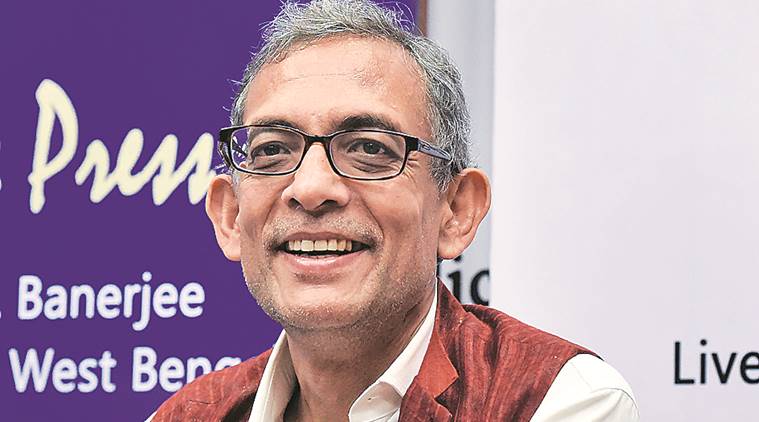 Abhijit Banerjee’s Abdul Latif Jameel Poverty Action Lab (J-PAL), of which he is co-founder, has done several Randomised Control Trials around tech-based learning interventions.
Abhijit Banerjee’s Abdul Latif Jameel Poverty Action Lab (J-PAL), of which he is co-founder, has done several Randomised Control Trials around tech-based learning interventions.
Abhijit Banerjee’s Abdul Latif Jameel Poverty Action Lab (J-PAL), of which he is co-founder, has done several Randomised Control Trials around tech-based learning interventions. With COVID-19 forcing educational institutions around the world to move to online classes, the Nobel laureate speaks to The Indian Express about why this shift is a “forced experience but a good one”.
As schools and colleges around the world turn to online classes, what does this COVID moment mean for education, globally and in India?
Internationally, we are discovering that a lot of prejudices around online education are now breaking down. My prediction is that many more people will now take online classes. If it’s good education, why not? Out of all this, one good news for people in India is that this kind of education model is extremely scalable. What had constrained education until now is the need for physical proximity. Online education makes it possible for someone in India to take an online computer science course at MIT. And once even MIT students start taking the same classes, people won’t snigger that it’s an online course. That’s a big shift. So if MIT, Harvard, Stanford, IITs have online classes, people will be much more respectful of online education.
Read| School’s out
Here I have an axe to grind. J-PAL curated a Master’s programme (in Data, Economics & Development Policy) with MIT that started last year, which is half online. So I am convinced that while there are always prejudices that it’s an online course, it’s healthy to lose some of those.
So is this the disruption that education needed?
I don’t see this moment as being dire from the point of education. It’s a forced experience, but a good experience. ‘Forced’ because many of us were probably not ready for it. But I don’t see this experience negatively. The question now is, how to do education in a more democratic way where courses don’t have allegiance to a fixed syllabus or physical location.
J-PAL’s RCTs have found that tech-based interventions can have a positive effect on learning levels. But has your research indicated age-wise difference in learning levels? Is tech-aided education more effective for older children than for those in primary classes?
I don’t think anyone has done the comparison for younger and older children. But we have had good results for children who are not 6, but 9 or 10; not online, but computer-aided learning. There is nothing in our data that 10-year-olds learn less than older kids through online classes.
My youngest is six and he seems to be enjoying it so far. Not for very long in a day — about two hours or something of screen time. He is okay with that.
Do you see online education being a replacement for school education?
I don’t think online education can replace schools because parents need to go to work. My children are now pretty bored and reasonably willing to sit for a few hours (for online sessions), but even they need some monitoring. The issue is, will this shift to online classes throw a lot of work back on parents? There are other costs to online education.
Schools are wonderful ways for children to socialise, learn to sit in one place, listen to the teacher drone on and on. Those are great skills to have, essential skills. But the paradox is, some of the stuff online is so good, so compelling — a Khan Academy session, for instance — that children won’t learn these essential skills of learning to sit in one place, being bored, etc.
In the future, schools will probably move more things online and teachers will probably take on the role of minders. It is not clear whether this is a good thing or bad: teachers are both a source of gain and pain in our lives. We have all surely experienced both sides, good teachers and the bad.
There’s also the reality of the digital and social divide in India.
Technology is so cheap. A good tablet or a device doesn’t cost much. The problem is more that as technology gets better, there’s the temptation to upgrade. And better the technology, the greater the demand on bandwidth and other things. So in countries like India, governments can subsidise devices to an extent and pay to keep some of the old (educational) videos running. Digital divide is a lot about timing. So while real paying markets like the US or elsewhere might be willing to upgrade, India must have a proactive policy of saying old videos are useful for us, keep it on the server.
But the larger point is, this kind of (tech-based) education is completely scalable. There is no reason to reinvent the wheel. Models already exist.